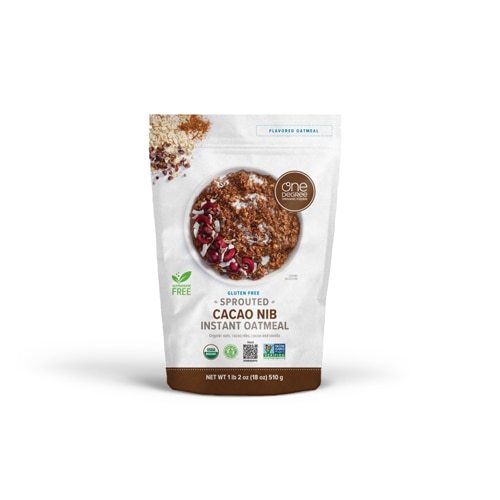[vc_row][vc_column][vc_column_text]Gluten has been a hot topic in the health industry for many years now. It may seem like everyone you know is either trying to follow a gluten-free diet or is cutting back on foods with gluten. While a gluten-free diet was originally designed for people with
celiac disease, it has been advertised as being a healthier option for just about everyone. But is this really true?
Learn about the potential benefits and risks of following this diet and decide whether or not you should try a
gluten-free diet.

Is Gluten Free Healthy?
What is gluten?
It is first important to make sure you understand what gluten actually is, and where it is found in foods.
Gluten is a protein found in the grains of rye, barley and wheat, as well as all products that are made with these ingredients.
Common foods that have gluten include:
- Bread and bread products like bagels, doughs, crackers
- Flour tortillas
- Wheat-based pasta
- Baked goods and pastries
- Many cereals and snack foods
In addition, gluten can be an ingredient in a large variety of other foods, including sauces, salad dressings and many types of processed foods. This is why it is important to check the ingredients list and become familiar with foods that contain gluten.
Why are some people gluten-free?
The original purpose of a
gluten-free diet was for people with
celiac disease. Celiac disease is an autoimmune disease that affects about 1% of the population.
However, in more recent years gluten has been believed to be a contributor to many other health ailments. As a result, the media has widely promoted following a gluten-free diet, which has led to millions of Americans cutting it out of their diets. In fact, a survey done by
Consumer Reports National Research Center found that about 63 percent of Americans believed that following a gluten-free diet would improve physical or mental health and about a third reported trying to avoid gluten.
Yet the trend of being gluten-free isn’t necessarily the best idea for everyone.
Is a gluten-free diet healthy?
Contrary to popular belief, a gluten-free diet does not automatically mean a healthier diet. Because of the increased trend and demand for
gluten-free foods, many food manufacturers have created new products that are often highly processed and less nutritious compared to those that naturally contain gluten.
As a result, eating mostly manufactured gluten-free products can lead to eating more
sugar, salt and saturated fat. It can also cause you to consume more preservatives or artificial and man-made ingredients that don’t necessarily support good health.
In addition, the
Celiac Disease Foundation reported that people who follow a long term gluten-free diet may not get enough of some
important nutrients, including:
A recent study also showed that avoiding gluten may actually lead to
negative health effects for people without proven gluten-related disorders. This is partly because eating the whole grains that contain gluten can have many
health benefits, including a reduced risk of cardiovascular disease, stroke, diabetes and some cancers. If you avoid gluten without actually needing to, you could be interfering with these possible benefits.
Who should be gluten-free?
People with celiac disease or an allergy to wheat must follow a gluten-free diet to protect their health.
Some research also shows that people with certain
other conditions, such as irritable bowel syndrome (IBS), fibromyalgia and endometriosis may benefit from a gluten-free diet. This may be because gluten can increase
inflammation in the body for some sensitive people. However, this research is still emerging and as of now there is not enough evidence to support following a gluten-free diet for healthy people who tolerate gluten.
It is also possible to have a food sensitivity to gluten, known as
non-celiac gluten-sensitivity. This is characterized by symptoms such as bloating, irregular bowel habits, abdominal pain, brain fog and fatigue which resolve after removing gluten from the diet. This condition is difficult to diagnose, and is usually only done so after
ruling out other conditions.
Tips for eating healthfully on a gluten-free diet
People who do need to follow a gluten-free diet can do so in a healthy way by following a few guidelines. These include:
Eating mostly healthy versions of foods that are naturally gluten-free (rather than specially created to be so). Examples of foods that are naturally gluten-free include:
Paying attention to the nutrition facts and ingredients list. Check the added sugar, sodium and saturated fat content of all packaged gluten-free foods. Also, be on the lookout for long ingredient lists that contain many items you don’t recognize or can’t pronounce, as this can be a sign of a more processed food.
Only buying packaged products that are certified gluten-free. These should have the “gluten-free” label on them, which is regulated by the FDA.
There is no valid reason to avoid gluten if you do not have a gluten-related disorder, and doing so may actually be less healthy for you. Unless you have celiac disease, a gluten-sensitivity or another gluten-related disorder, it is usually best to focus on consuming healthful sources of gluten and a variety of other foods in your diet.[/vc_column_text][/vc_column][/vc_row][vc_row][vc_column][vc_text_separator title="Featured Products" border_width="2"][vc_row_inner equal_height="yes" content_placement="middle" gap="35"][vc_column_inner width="1/3"][vc_single_image image="164778" img_size="full" alignment="center" onclick="custom_link" img_link_target="_blank" css=".vc_custom_1675908904508{padding-right: 7% !important;padding-left: 7% !important;}" link="https://www.vitacost.com/crispy-green-crispy-fruit-4-pack-all-pear"][/vc_column_inner][vc_column_inner width="1/3"][vc_single_image image="164779" img_size="full" alignment="center" onclick="custom_link" img_link_target="_blank" css=".vc_custom_1675908923205{padding-right: 7% !important;padding-left: 7% !important;}" link="https://www.vitacost.com/freestyle-snacks-kalamata-olives-extra-virgin-olive-oil"][/vc_column_inner][vc_column_inner width="1/3"][vc_single_image image="164780" img_size="full" alignment="center" onclick="custom_link" img_link_target="_blank" css=".vc_custom_1675908943081{padding-right: 7% !important;padding-left: 7% !important;}" link="https://www.vitacost.com/outstanding-foods-cheese-balls-garlic-parmesean"][/vc_column_inner][/vc_row_inner][/vc_column][/vc_row]




